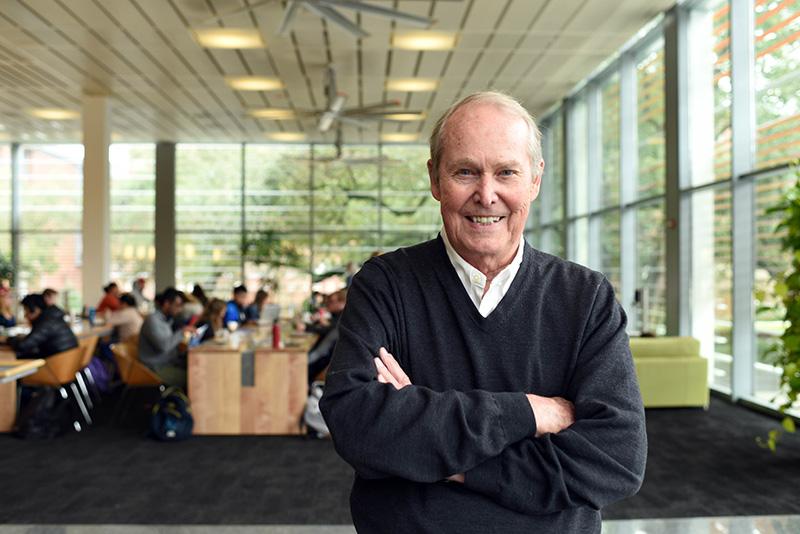John Trapani, longtime associate dean, to retire

In a more than 30-year career at the Freeman School, John M. Trapani served as associate dean, senior associate dean and vice dean and led the development of international programs as the founding executive director of the Goldring Institute of International Business.
John M. Trapani, who served the Freeman School as senior associate dean, vice dean and founding director of the Goldring Institute of International Business, has announced his intention to retire on June 30, bringing to an end a career that included more than 30 years in senior leadership at the Freeman School.
A native of Texas and graduate of the University of Texas at Arlington, Trapani first came to Tulane in the late 1960s to pursue a doctoral degree in economics. After earning his PhD, he served as an assistant professor of economics at the University of Texas at Arlington for a year and a half before returning to Tulane in 1972 to become an assistant professor and, later, associate professor of economics. In 1981, he was appointed professor and chairman of the Department of Economics at the University of Texas at Arlington.
In 1989, he accepted an offer from James McFarland, the newly appointed dean of the Freeman School, to return to Tulane as associate dean for executive education and international programs. That marked the beginning of a more than 30-year role in senior leadership at the Freeman School. He served as senior associate dean and vice dean from 1990 to 2002 and returned to the role of vice dean from 2005 to 2007. Since 2001, he has served as the Martin F. Schmidt Chair in Business and Economics. In 2012, former students led an effort to establish the John M. Trapani III Professorship in Business Administration, an endowed professorship that pays tribute to Trapani’s lifetime of teaching and mentorship.
Trapani’s biggest impact at Freeman, however, was in the area of international programs. In 1992, he was appointed the founding director of the Goldring Institute of International Business, and in that role, and later as executive director, he led the development of international programs until June 2020. Trapani was instrumental in developing the Freeman School’s institution-building strategy, which involved partnering with business schools across Latin America to enhance existing programs or offer new programs.
Perhaps the most significant program to come from that strategy was the Latin American faculty development PhD program. In addition to building stronger relationships with Freeman’s Latin American partner institutions, the program has awarded 85 Tulane doctoral degrees to Latin American business professors, making Tulane one of the most prominent U.S. business schools in the region. Even more notably, nearly half of those PhD recipients have gone on to become deans, directors or senior administrators at their institutions.
More recently, Trapani has built stronger relationships with universities in China, including Zhejiang University, Xiamen University and the Graduate School of the Chinese Academy of Social Sciences. Thanks in large part to Trapani’s efforts, the Freeman School now admits hundreds of Chinese students to the Master of Finance, Master of Accounting and Master of Business Analytics programs and offers a number of programs in China, including a Professional Master of Finance, a Master of Management in Energy and an executive MBA.
“Few individuals have played as significant a role in the growth and development of the Freeman School as John Trapani,” says Freeman School Dean Ira Solomon. “From executive education to his service as vice dean in the wake of Hurricane Katrina to his work in international program development, John has helped to make the Freeman School what it is today. I join the entire Freeman community in thanking John for his service and wishing him well in retirement.”
Interested in advancing your education and/or career? Learn more about Freeman’s wide range of graduate and undergraduate programs. Find the right program for you.
Other Related Articles
- Freeman students make Madrid their classroom
- Three Freeman students awarded 2025-2026 Fulbright grants
- International MD/MBA class inspires student to volunteer in Guatemala
- Executive MBAs travel to South Africa for lessons in global management
- Freeman student builds community far from home
- Freeman growing as Fulbright destination
- Executive MBAs from around the world come together for International Week
- Ukrainian scholar to discuss economic impacts of war
